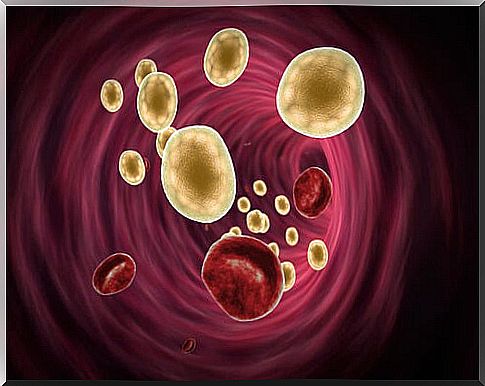12 Things You Experience Due To Vitamin D Deficiency
Vitamin D is a fat-soluble nutrient that, together with other vitamins and minerals, helps regulate the functioning of the body’s major systems. It is obtained naturally by exposing the skin to the sun’s rays, although it can also be found in food and supplements.
It stands out for being essential for the absorption of calcium and phosphorus, two minerals that keep bones and teeth strong. Among other things, it is necessary for the muscles, the brain, the heart and other organs whose proper functioning guarantees a good quality of life.
The problem is that not everyone is able to obtain it at adequate levels and, because of this, symptoms and health problems are triggered that tend to worsen when the deficiency is not treated soon. For this reason, it is important to know how to identify it and, of course, take the necessary measures to improve its absorption every day.
1. Muscle and bone weakness

Muscles and bones suffer more easily when vitamin D levels are significantly reduced, according to a study published in the Archives of Osteoporosis. This is because it also generates imbalances in magnesium levels, which is another essential mineral to keep them strong and healthy.
2. Depression
Drops in the levels of this essential nutrient are associated with a tendency to suffer from irritability, depression, and sudden mood swings.
Vitamin D participates in the secretion of well-being hormones and, therefore, its deficiency affects mental health.
3. Swelling and pain

Like many other essential nutrients, vitamin D participates in the control of inflammatory processes in the body, avoiding problems such as sensitivity to pain or joint diseases.
Its low levels increase the risk of suffering from these types of disorders, making it difficult to fight chronic pain. This is stated by research published in Skin Pharmacology and Physiology.
4. Dental problems
As we have already indicated, the lack of vitamin D hinders the absorption and proper use of calcium in the teeth, increasing the risk of infections and loss of teeth.
This, in addition to the inflammatory problems that it implies, generates symptoms such as redness, inflammation and bleeding of the gums.
5. High blood pressure

One of the aspects that must be taken into account when blood pressure increases are the possible nutritional deficiencies that are linked to it.
Although this cardiovascular disorder is caused by multiple factors, a lack of vitamin D can cause complications.
6. Feeling of fatigue
The low absorption of vitamin D in the body influences physical and mental performance, generating a strong feeling of fatigue in affected patients.
Often, the person is drowsy and can hardly carry out the daily tasks that are used to doing.
7. Increased body weight

Since vitamin D is one of the fat-soluble nutrients, people who are overweight and obese need to absorb more of it.
Its low levels complicate metabolic activity and therefore make it difficult to regain a healthy weight.
8. Asthma
The deficiency of this nutrient is related to difficulties in the treatment of asthma, since it is linked to lower lung functions.
Its correct assimilation facilitates the control of this respiratory problem, since it blocks the proteins that generate inflammation in the lung tissues.
9. High cholesterol

Among the functions that this vitamin plays in the body is its relationship with cleaning bad cholesterol (LDL) that accumulates in the blood.
A person who cannot maintain an appropriate amount is at greater risk of suffering from the effects of hypercholesterolemia.
10. Flu and cold
Having low levels of vitamin D has been shown to affect the production of antibodies by the immune system and, therefore, there is a greater likelihood of recurring colds and flu.
The aggravating factor in these cases is that, due to insufficiency, the respiratory ducts and tissues tend to become more easily irritated.
11. Intestinal problems

Fat absorption problems have a link to vitamin D deficiency and, in turn, these influence the development of intestinal problems.
It is essential to improve its absorption in cases of:
- Gluten sensitivity (celiac and non-celiac).
- Crohn’s disease.
- Inflammatory bowel disease
12. Excessive sweating
With the little absorption of this nutrient, hormonal changes occur that can generate symptoms such as excessive sweating.
It is common for the patient to feel excess sweat during the day, especially on the head.
Lack of vitamin D affects health
Can you identify these symptoms? If you suspect this nutritional deficiency, try to increase the consumption of foods that contain it and, if possible, absorb it through short sun baths.
Keep in mind that in the latter case it is very important to be cautious, since the sun’s rays have counterproductive effects when there is prolonged exposure and without protection.









